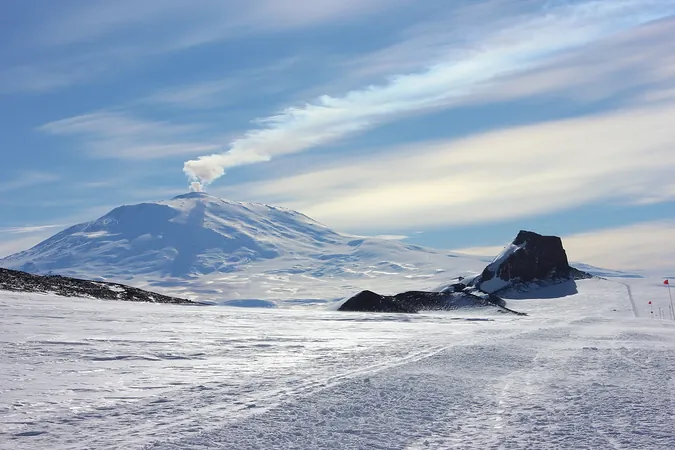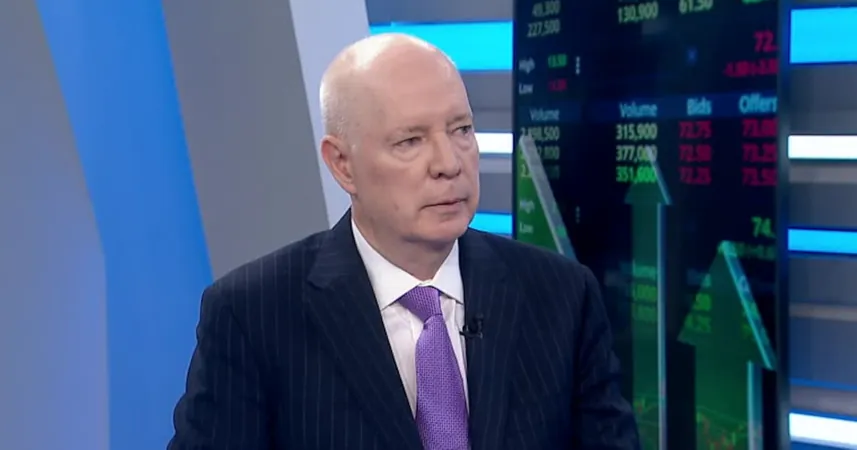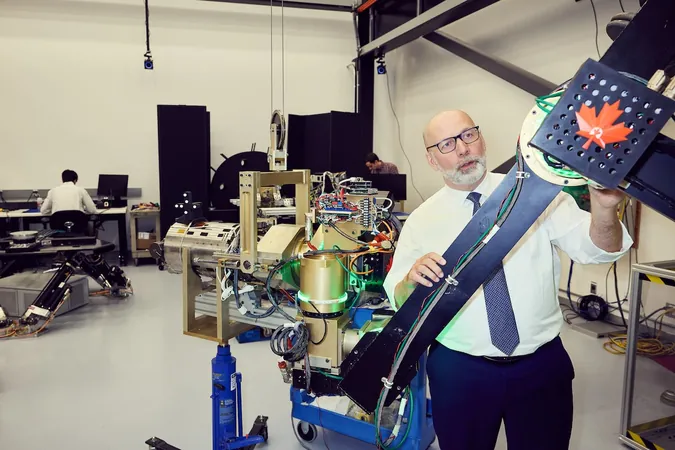
Could the Melting of Glaciers Spark Volcanic Eruptions Worldwide?
2025-07-08
Author: William
A Shocking Connection Between Climate Change and Volcanic Activity
As our planet warms, scientists are raising alarming concerns: the retreat of glaciers may trigger volcanic eruptions, particularly in regions like Antarctica. During a recent presentation at the Goldschmidt Conference in Prague, researchers warned that the world's dormant subglacial volcanoes could awaken, posing serious risks for explosive eruptions.
Hidden Volcanic Threats Beneath the Ice
Subglacial volcanoes, found beneath ice sheets and glaciers, are not just confined to Antarctica. Regions such as Iceland and British Columbia also harbor these hidden giants. Antarctica stands out as the globe's largest glaciovolcanic province, with volcanic activity stretching approximately 5,000 kilometers from the South Sandwich Islands to East Antarctica.
An Unfolding Crisis: The Science Behind Volcanic Awakening
This link between melting glaciers and volcanic eruptions isn’t a new revelation. Scientists in Iceland have understood it since the 1970s, but recent findings suggest it's time to pay attention to other regions too. A 2022 study published in Bulletin of Volcanology indicated strong correlations between heavy rainfall and glacier melting with an uptick in volcanic activity.
Pablo Moreno-Yaeger from the University of Wisconsin-Madison emphasized that Antarctica isn't alone in this risk, stating, "Regions like North America, New Zealand, and Russia could soon face increased geological scrutiny." His team examined volcanoes, including Chile’s Mocho-Choshuenco, and their research revealed how glacial forces can shape volcanic behavior.
The Mechanism of Eruption: How Glaciers Hold Back Volcanoes
The study highlighted that glaciers can suppress volcanic eruptions by placing immense weight on the crust. During the last ice age, this suppression allowed a significant buildup of magma beneath the surface. However, as glaciers recede due to climate change, the sudden decrease in weight could unleash powerful eruptions. Moreno-Yaeger noted, "When glaciers retreat, the changed pressure conditions can lead to more frequent and violent eruptions."
Long-Term Consequences of Eruptions and the Climate
The researchers explained that volcanic eruptions could initially cool the planet by releasing aerosols into the atmosphere, as seen with the Mount Pinatubo eruption in 1991. But the long-term implications could be dire—cumulative eruptions may heighten global warming due to greenhouse gas emissions.
This creates a concerning feedback loop: melting glaciers trigger eruptions, which may, in turn, accelerate global warming and further glacial retreat. In essence, nature's delicate balance hangs by a thread, as warming climates threaten to wake the earth’s hidden fiery giants.
What Lies Ahead?
As scientists continue their studies, understanding the timing and impact of potential eruptions could afford us an early warning system. Although the resurgence of volcanic activity may take centuries, the signs are there, and the consequences could be world-altering.
In a rapidly changing world, it's crucial we pay attention to these geological processes, as they may soon represent one of the most unexpected threats posed by climate change.









 Brasil (PT)
Brasil (PT)
 Canada (EN)
Canada (EN)
 Chile (ES)
Chile (ES)
 Česko (CS)
Česko (CS)
 대한민국 (KO)
대한민국 (KO)
 España (ES)
España (ES)
 France (FR)
France (FR)
 Hong Kong (EN)
Hong Kong (EN)
 Italia (IT)
Italia (IT)
 日本 (JA)
日本 (JA)
 Magyarország (HU)
Magyarország (HU)
 Norge (NO)
Norge (NO)
 Polska (PL)
Polska (PL)
 Schweiz (DE)
Schweiz (DE)
 Singapore (EN)
Singapore (EN)
 Sverige (SV)
Sverige (SV)
 Suomi (FI)
Suomi (FI)
 Türkiye (TR)
Türkiye (TR)
 الإمارات العربية المتحدة (AR)
الإمارات العربية المتحدة (AR)